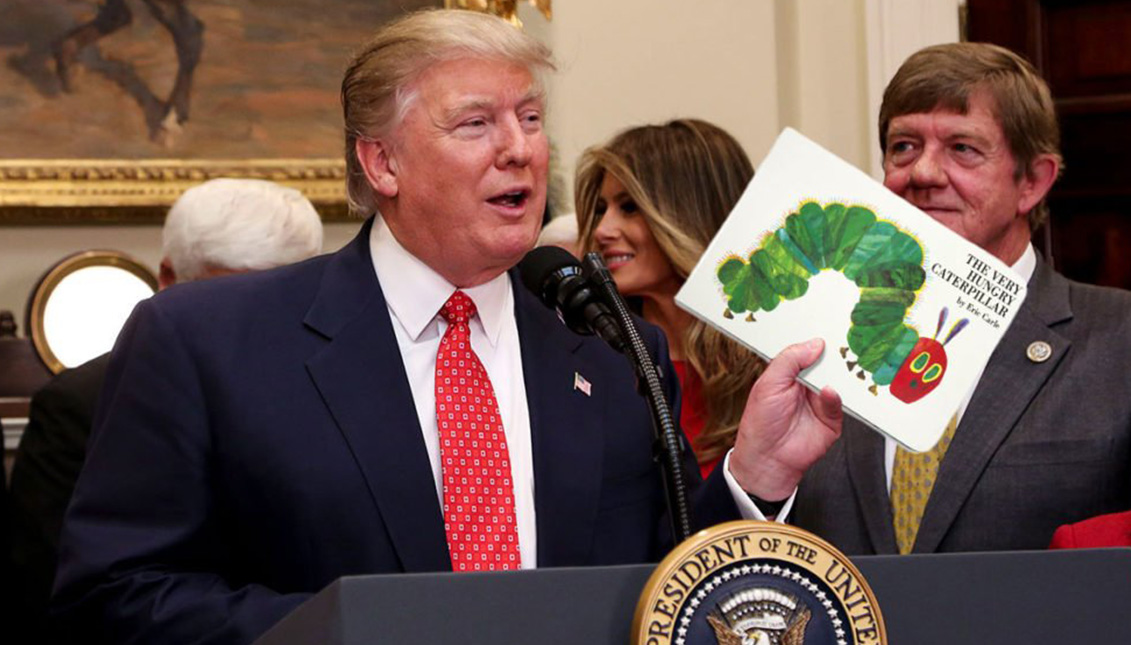
Writers who want to 'save' America from Trump
Authors such as Valeria Luiselli and Paul Auster call for greater activism by intellectuals in elections to encourage young voters.
The writer Paul Auster would have wished that he had had a crystal ball ten years ago to anticipate the political situation that was coming.
With only three months left before the elections, you no longer need to be a magician to foresee what the political and social scenario will be if Trump is reelected.
That's why Auster has pulled the strings of his responsibility as a writer and as a citizen to call for political change.
"We are launching an emergency message, especially to young people: go out and vote," said Auster during his talk last Friday with Mexican author Valeria Luiselli at the Hay Festival in Querétaro. A conversation very centered on U.S. politics in which both Auster and Luiselli, who has documented the situation of immigrants in ICE centers, especially children, represent two pillars of U.S. progressivism.
"Intellectuals must move on to more radical activism to succeed, beyond giving our opinions, to think about what we are going to do to get out of this chaos together," suggested Luiselli, the author of The Lost Children.
Of course, Auster was already on it.
The writer of Moon Palace was one of the first and most combative members of Writers against Trump, a coalition of writers who want the current President to be defeated and encourage disgruntled citizens to exercise their right to vote.
In the group's ranks are some of the most critical minds in poetry and prose of the country, as the writer Siri Husvedt — Auster's wife —, Margaret Atwood, Carolyn Forché or Natasha Trethewey, and also Latinxs writers as Julia Alvarez, Robert López, Edwin Leslie Contreras Schwartz or the Mexican Carmen Boullousa.
"I was born in Mexico City. I am here proudly to join the 'Writers Against Trump' movement. I have seen how he mistreats my people. I have seen who he is. It's not just America's future that's at stake: it's the entire Earth," Boullousa enthusiastically stated in a video posted on the Writers Against Trump site.
The writer continued: I encourage you to go out and vote, as I will, for Biden and Kamala. "Let's vote, Latinos! Our vote will decide who is the next President. Let's vote for Biden and Kamala."
Part of the initiative is encouraging authors to write a short statement about the importance of the upcoming elections and why it is critical for them, and post this statement on the site and the group's Instagram account.
Luiselli, who is not at the moment among the members of Writers Against Trump, maintains her belligerence against a government that feels hostile to the Mexicans, but does so in her own way:
"I give students literature to light the fuse, to go out and vote," the writer said at Hay Festival, adding that books are a tool for social change.
RELATED CONTENT
The group Writers Against Trump not only makes no secret of its support for Biden-Harris, but is organizing readings and webinars in support of their campaign, and encourages writers to volunteer to speak at both Democratic leaders' events.
Proof of this was the September 5 talk in North Carolina between Movement Voter Project consultant Jillian Johnson and writer Jill McCorkle. A second intervention will take place on September 19, although the participants are not yet known.
However, one could argue the scope of writers' influence today, in a country where reading rates are falling year after year — something that can be extrapolated to many countries, especially after the rise of social networks.
According to the Pew Research Center's survey on the reading habits of Americans in 2019, a quarter of Americans said they had not read any books in the past year. Those most likely to admit to it were adults whose annual family income is $30,000 a year or less, with or without high school education, and 33% and 40% African Americans and Hispanics, respectively.
An undecided reader of Paul Auster, who has voted Republican most of their life, can change their vote by the necessary political activism of an intellectual elite to which they may belong.
A young student who accesses through scholarships or by paying the very high fees to college can also be influenced by the readings of great authors like Valeria Luiselli and inspired by their activism.
The de facto weight of great progressive minds in a country where access to culture is still so closely related to wealth is minuscule compared to that of celebrities on the big and small screen.
"Get out and vote," Auster implores, "we must tip the scales. But as he also once wrote, "The real goes beyond what we can imagine," and that 'other' reality is also America.












LEAVE A COMMENT: